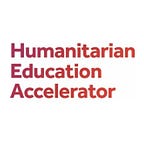Design Series: Designing innovative business models for sustainable scale
By Claire Mongeau, CEO and Phoebe Khagame, Head of Operations, M-Shule
The problem of sustainability is one that challenges every education platform working in tough contexts, including ours. When M-Shule started, we envisioned a world in which every learner — even those in the most resource-strapped, marginalized communities in Sub-Saharan Africa — could access impactful learning tools on the basic feature phones already in their homes. We set ourselves up as a social enterprise with double impact and financial bottom lines, to use the power of business and tech innovation to impact millions. And we decided to sell our SMS-based personalized learning platform directly to parents themselves, since parents are the ultimate decision-maker and most invested in their children.
In the three years since, we have experimented, failed, iterated, and learned a lot about our assumptions around financial sustainability and profitability. We found out that parents in Kenya — even in the lowest-income environments — do pay significant amounts on supplementary learning for their children, from $2 a month in after-school revision classes to $20 each weekend for one-on-one tutoring. With the push towards technology in schools, parents are, in fact, willing to try out SMS educational products. When COVID-19 hit, we also found out how heavily impacted these communities were. 85% of Africans work in the informal economy and COVID-19 caused household incomes to drop by more than 30% — it’s a struggle for families just to feed themselves. But with schools closed, accessible remote learning is more critical than ever.
How could we, as M-Shule, examine other business models to sustain our platform financially while meeting this incredible need? That’s the question with which we entered our business design sprint through HEA, with the awesome team at IDEO.org. We wanted to challenge ourselves to identify new ways to deliver learning to refugee learners, still engaging the community but ensuring that there are other options in times of crisis.
The fantastic consulting team started off by digging into our own evolution and learnings from our financial journey working with parents and students over the years. After we explained our core challenges, they jumped into desk research and expert interviews with practitioners in edtech, investment, refugee education, and business modeling.
We then had our first opportunity to look at the types of business models worth exploring and case studies of successful startups and social enterprises that used them. Some — like cross-subsidization and direct pricing — were familiar, with some new flavors or ideas to pick from. But some we had never considered before — like using collectives or service exchanges! These interesting new approaches grew out of the team’s conversations with successful programs that were changing lives in refugee communities. It was a healthy opportunity for M-Shule to reconsider what we thought was “most” important or “most” feasible when rolling out a sustainable program. With our initial thoughts and feedback collected, the IDEO.org team went back to work refining the ideas.
At the end of the intense two week sprint, the IDEO.org team presented their final recommendations! Some exciting new ideas that we as M-Shule should consider to provide learning in a financially sustainable way included:
1.Engage a wider community
Before, M-Shule had received payments directly from parents as well as from organizations to cover learning subscriptions for larger groups of learners. But what if we built more multidimensional relationships with the community to grow?
For example, the sprint team recommended partnering with community collectives themselves to act as ambassadors, promoters, and supporters for our platform. If we were able to partner with institutions to provide resources to these collectives, we might have an activated field team that takes on the growth and development efforts for mutual benefit. This would help M-Shule develop the community in more ways than one, bringing in a social element that we hadn’t considered before!
2. Combine multiple models
Particularly with a small startup team, it’s hard to take a step back and conceptualize how different, complicated business models could complement each other in execution. The IDEO.org team broke down some easy ways that different approaches could work together. This made it much easier to figure out how our team could test different strategies without stretching ourselves too thin.
3. Think short-term to long-term
Most importantly, we needed to think about our journey to scale. One of our biggest concerns was how to grow a successful model if it was too resource-heavy on the execution. The IDEO.org team listed some short-term options to accelerate growth, which transitioned into longer-term options for sustainability. These potential journeys made it so much easier to understand the long-term gains from each approach — making it even more worth our effort!
So, what’s next? The excellent sprint team left us with suggestions and ideas of how to test out each of these models during our project. We’re excited to jump into these experiments to see how accessible learning for refugees can be scaled through sustainable business models!
